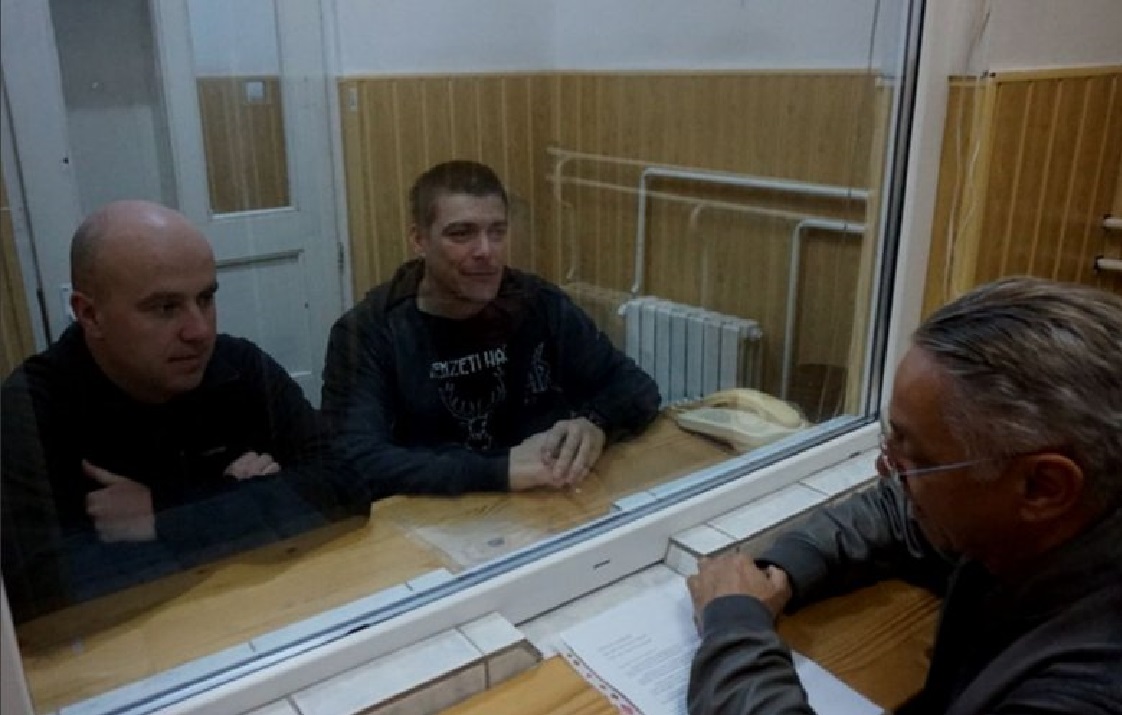On Monday morning, the Brassó (Brașov) County Court approved the conditional release of István Beke and Zoltán Szőcs, two Szekler activists formerly charged with terrorism and sentenced to five years in prison. “Thank you, God! They are free at last!” – wrote Csilla Beke, the wife of István Beke, in a Facebook post. (via szekelyhon.ro and 3szek.ro)

The legally binding county court decision was proclaimed Monday afternoon at the official portal of the Romanian courts, but both families had already been told about the final and legally binding decision earlier in the morning by their lawyers; they immediately traveled to Codlea (Feketehalom in Hungarian) and waited hours in front of the prison for the two men. The prison gates opened up around 4 p.m., so István Beke and Zoltán Szőcs were able to head home and spend the night with their families.
In 2018, István Beke the Kézdivásárhely (Târgu Secuiesc) leader of the Sixty-Four Counties Youth Movement (Hatvannégy Vármegye Ifjúsági Mozgalom in Hungarian, also known by its acronym HVIM) and Zoltán Szőcs, the Transylvanian leader of HVIM were first convicted to 11 and 10 months in prison, respectively, which was the exact same time they had already spent behind bars by then. Therefore,
the prison imposed on them was declared served, but at their last court appearance, the charge was changed from offenses committed by pyrotechnic means against the community to an act of terrorism.
The defense was not prepared for this move, and so, on July 4, 2018, the Bucharest High Court of Justice sentenced the two men to five years in prison. Beke and Szőcs could appeal to the court after May 2020, which they have done four times since then.
The prison committee supported the release of the convicts each time, referring to their good conduct.
At the end of 2015, the Romanian Directorate for Investigating Organized Crime and Terrorism (DIICOT) brought István Beke and Zoltán Szőcs to trial. From their intercepted phone calls and the firecrackers found in Beke’s home, the Romanian authorities concluded that the two Szekler men wanted to detonate a homemade explosive device at the military parade on Romania’s national holiday on December 1, 2015. The parade took place on the main square of Kézdivásárhely, a Szekler town in Kovászna (Covasna) County with 17,000 inhabitants, 87 percent of whom are ethnic Hungarians.
In fact, István Beke had ordered the firecrackers one year earlier for New Year’s Eve, but the fireworks dealer only delivered half of his order and then contacted Beke almost a year later on November 15, 2015, telling that they wanted to deliver the other half too.
This statement was proven by István Beke’s wife, Csilla Beke, in 2018 with a Messenger conversation, but the question as to why the company only contacted Beke almost a year after his order (and a few days before his arrest accusing him of terrorism) remains unanswered.
The verdict of the High Court of Justice in July 2018 and the five-year prison sentence created a public uproar among both Transylvanian Hungarians and Hungarians living in Hungary as they considered the decision was made on a political basis and that the Romanian government was playing the “Hungarian card” again to divert attention from the chaotic state of Romania’s internal affairs. Protests were organized by Hungarian communities demanding the release of Beke and Szőcs, and Hungarian politicians also stood up for the two Szekler men, in Romania, Hungary and the European Parliament.
Title image: István Beke (on the left) and Zoltán Szőcs (on the right) together with Member of Parliament József Kulcsár Terza at their press conference held less than 24 hours after their release from prison on the main square of Kézdivásárhely, in front of the statue of Áron Gábor. (Photo: Erdélyi Magyar Szövetség – Háromszék Facebook)